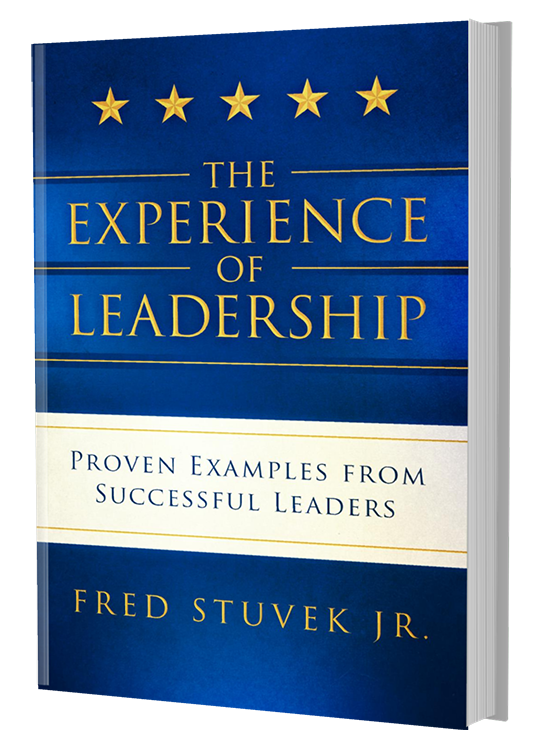The Experience of Leadership
What defines good leadership, and how can we become great leaders? That is the essence of any leadership journey. As you embark on your leadership quest and seek answers, I want to help you in discovering something, which may or may not be apparent, but which I hope will be by the time you are done reading this book. We don’t become great leaders by accident. We learn to be great leaders—often by the example of others. If leadership interests you and you are committed to learning best practices and principles, continue reading.
When I sat down to create The Experience of Leadership, I knew I wanted to put something together that would be different from other leadership books—a book that goes beyond inspiration and insights to offer the reader clear guidance on how to best develop their own leadership skills. Just as important, I wanted to show readers how they can continue to improve their skills, as we are always learning and growing. The “what” was there, but the “how” was something I wrestled with, as I wanted to accomplish three things with this book:
- The Experience of Leadership
- Help the reader become a great leader by learning new perspectives on leadership.
- Provide guidance on principles and practices that have been proven to work in a number of environments. Motivate and inspire the reader.
I wanted to cut through the generalities and nostrums about leadership and dive into the nitty-gritty details of how to obtain the experience and skills that great leaders display and aspiring leaders can learn from. So, I assembled a broad, diverse group of individuals who have attained success in various arenas in order to understand how their leadership journey unfolded—piece by piece. While most leadership books focus on leaders in the business world, highlighting titans of industry and celebrities, the crucible of leadership resides in areas that everyone has a great deal of experience with, has touched all of our lives, and is where most of life’s leadership lessons are learned. It is in the crucible where the ore is refined so that it can be shaped into a useful tool, just as it is with leadership. Areas such as the military, education, and the sports arena come to mind, first and foremost, since it is here that the basic principles are imbued. These princi- ples apply in any venue, across any platform. If your basics are sound, you are sound. Everything you do or learn from a leadership perspective has its origins in these camps.
It is not a coincidence that I mention the military and put it first on the list. There is tremendous value and benefit to having military experience. It has had a lasting impact on me, and I am thankful for the experience. I learned a number of lessons and values that had a direct and positive impact on my leadership endeavors throughout my life. It is the best arena for learning and developing leadership skills. Why is that? In the military, three things combine to forge a leadership journey. The first is the intensity of the demands. The necessity to make life-and-death decisions as well as decisions that affect millions or billions of dollars provides the intensity (the fire of the crucible). The second is the need to develop teamwork. You place your life in another’s hands and ask them to place theirs in yours (the ingredients in the crucible). The third is the ability to adapt and change as circumstances change (adapting to the different elements in the ore to achieve the needed refinement). There is no better place than the military to encounter all of these conditions so early in a career.
Education shapes all of our futures. Every teacher is a leader. They lead by example and set the standard by the way they conduct themselves, how they communicate, and how they handle the needs of each and every student. In addition to the work in the classroom, they also have a profound impact in the community, influencing and enriching our lives. They also are mentors, providing counsel and insight that help their students chart their course and find their own way.
Playing sports is another area where leadership skills are developed. You learn the value of teamwork and how everyone’s role contributes to collective success. You understand the value of practice and preparation. You develop the self-discipline required to acquire the skills. You experience adversity and learn to how to cope with failure. You learn to understand that, while a loss is a setback, you learn from it and become better prepared.
John F. Kennedy stated, “Leadership and learning are indispensable to one another.” That is certainly my hope here. By learning from the achievements of those men and women featured in The Experience of Leadership, you will be acquiring insight and knowledge that will be indispensable to you on your leadership journey.

